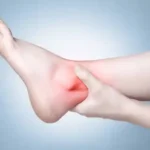Our hands are fundamental to daily life, so a hand injury can have a significant impact. While some injuries heal with basic care, others need a specialist’s attention. A hand surgeon can provide expert diagnosis and create a tailored treatment plan, including non-surgical options like therapy. Here is some information to help you identify common injuries and know when to seek care.
1. Fractures
A fracture, or a broken bone, can happen to any of the bones in the hand and wrist. These injuries often result from a fall, a sports injury, or direct impact. Symptoms of a fracture typically include severe pain, swelling, bruising, and an inability to move the affected finger or wrist. You might also notice that the hand or finger looks misshapen.
Seek medical attention right away if you suspect a fracture. While some minor fractures can heal with a splint or cast, more complex breaks may require surgery to realign the bones. A hand surgeon is able to properly assess the injury with X-rays and determine the best course of action so the bones heal correctly and you regain full function.
2. Arthritis
Arthritis is a common condition that causes inflammation and stiffness in your joints, often affecting your hands. The two most common types are osteoarthritis, which results from general wear and tear, and rheumatoid arthritis, an autoimmune disorder. You might notice symptoms like joint pain, stiffness, swelling, and a decreased ability to move your fingers freely.
If persistent joint pain in your hands is making daily tasks difficult, don’t hesitate to consult a hand surgeon. They can accurately diagnose your specific type of arthritis and create a personalized treatment plan. This plan might involve medications, lifestyle adjustments, or occupational therapy to help you manage tasks with greater ease. For advanced cases, surgical options can relieve pain and restore function.
3. Nerve, Tendon, and Ligament Injuries
Your hands are a complex network of nerves, tendons, and ligaments that can be injured in various ways.
- Nerve Entrapment: This occurs when a nerve is compressed or squeezed. Carpal tunnel syndrome is a well-known condition that causes numbness, tingling, and weakness in the hand and arm.
- Tendon Injuries: Tendons connect muscles to bones and may be injured from a cut or ruptured during strenuous activity. A common sign is the inability to bend or straighten a finger or thumb.
- Ligament Injuries: Ligaments connect bones to other bones and can be sprained or torn, often leading to joint instability. A sprained thumb from a fall is a common occurrence.
These injuries can cause lasting pain and functional loss if not treated correctly. If you experience symptoms like persistent numbness, weakness, or an inability to move parts of your hand, it’s wise to consult a hand surgeon. They perform tests to diagnose the issue and may recommend treatments ranging from splinting and occupational therapy to surgery to repair the damaged tissue.
Visit a Hand Surgeon Today
Recognizing the signs of a serious injury and knowing when to seek specialized care are the first steps toward a successful recovery. If your symptoms are severe, persistent, or limiting your daily activities, consulting a hand surgeon helps provide a clear diagnosis and a tailored treatment plan, which may include non-surgical options like occupational therapy. Taking proactive steps helps you receive the proper care at the right time.





